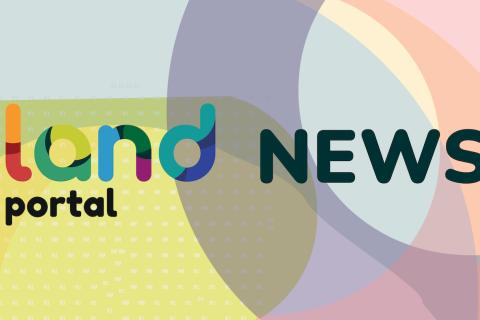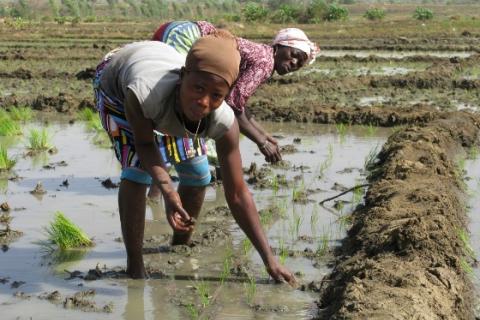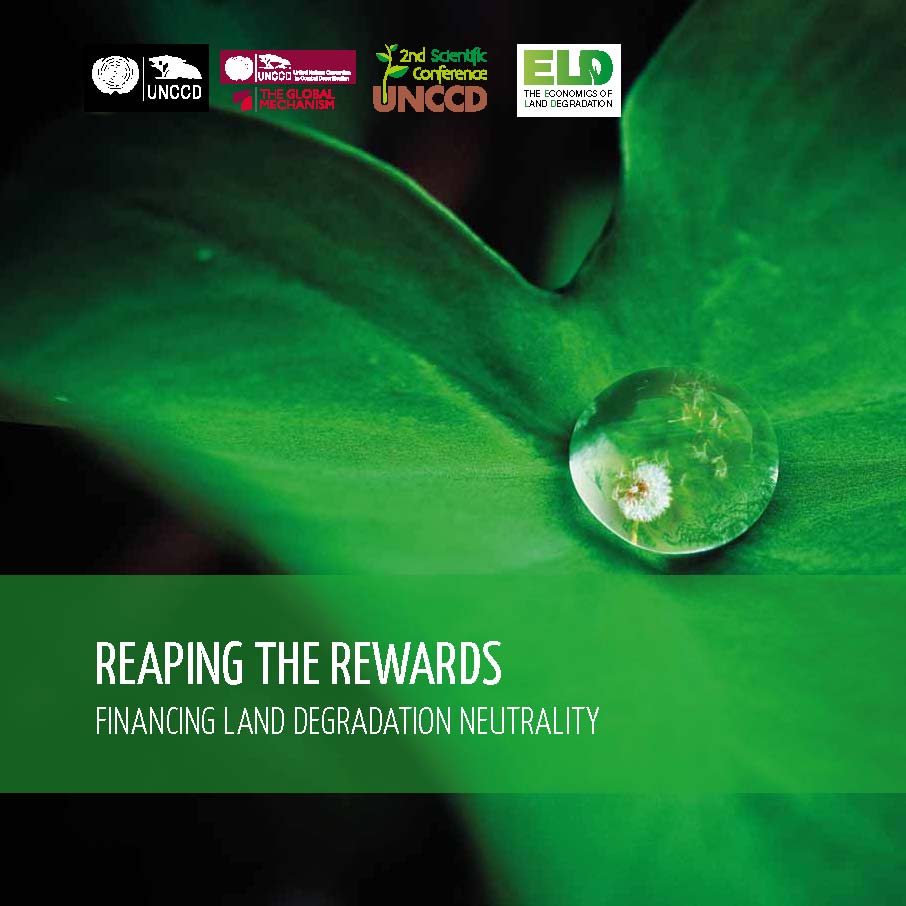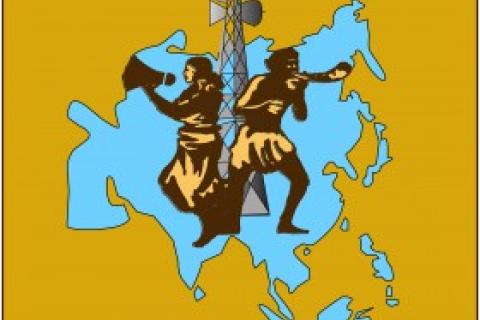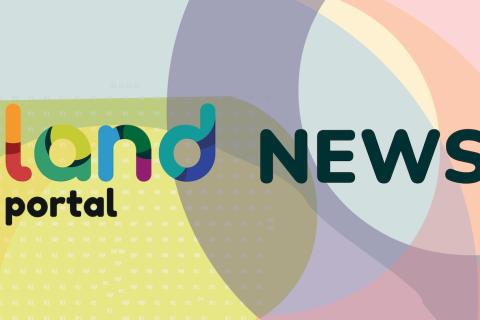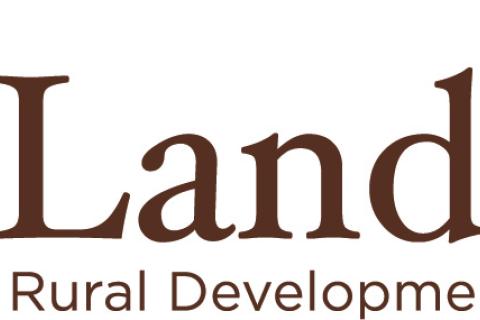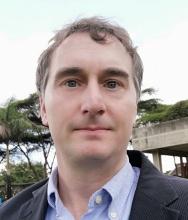
Topics and Regions
Neil Sorensen joined the Land Portal as its Communications Specialist in October 2015. He has extensive experience leading communications for international organizations and developing relationships with civil society, donors, intergovernmental agencies, the media and the private sector. Previously, Neil worked for the International Fund for Agriculture Development (IFAD) as a Governing Bodies Officer and Strategic Adviser to the Secretary of IFAD. He has also led communications for three international organizations, including the International Land Coalition, the International Federation of Agricultural Producers (IFAP) and the International Federation of Organic Agriculture Movements (IFOAM). He holds a Master’s degree in Global Diplomacy from the University of London School of Oriental and African Studies (SOAS) as well as a Bachelor’s degree with a double major in German and Sociology from St. Cloud State University.
Details
Location
Contributions
Displaying 1121 - 1130 of 1145India: single women demand rights over land and livelihood
Single women under the banner of National Forum for Single Women’s Rights on Tuesday demanded that the government ensure their constitutional rights over land and livelihood.
Women leaders pointed out that in some states, they do not have legal right over land, while in others they do have such rights but without any mechanism of implementation.
The women gathered in the national capital for a convention representing 11 states said that their struggle is to have the central government draft a special policy for single women.
Land rights activists warn of dangers in UN proposal
The farmer and the cowman, the musical Oklahoma tells us, should be friends. Hindou Oumarou Ibrahim, a remarkable young African woman who campaigns for land rights for her pastoralist Mbororo people, would agree.
Water and land rights – hand-in-hand for sustainable development
The recent Stockholm World Water Week provided plenty of opportunities to explore the links between water and land rights, and the importance of these rights for ensuring sustainable development at both local and national level.
Who Owns the World's Land? A Global Baseline of Formally Recognized Indigenous and Community Land Rights
In recent years, there has been growing attention and effort towards securing the formal, legal recognition of land rights for Indigenous Peoples and local communities. Communities and Indigenous Peoples are estimated to hold as much as 65 percent of the world’s land area under customary systems, yet many governments formally recognize their rights to only a fraction of those lands. This gap—between what is held by communities and what is recognized by governments—is a major driver of conflict, disrupted investments, environmental degradation, climate change, and cultural extinction.
Reaping the Rewards: Financing Land Degradation Neutrality
As a result of poor management practices and contrary to logic; finance and investment in food production has been one of the main drivers of land degradation by transforming natural ecosystems and favoring short-term profits over long-term sustainability. For all sectors that rely on the land, “business as usual” comes with rising costs and new risks. Risks we cannot afford in the post-2015 world.
Indigenous Voices in Asia Media Showcasing Fair 2015
The indigenous peoples who are largely concentrated (70%) in Asia region of more than 200 million continue to experience social injustice and discrimination. Their identities and collective rights continue to be denied by states particularly their rights to their lands, territories and resources, cultural heritage and self-determined development.
Peasant women decry landlessness, hunger, poverty
Women’s groups led by the National Federation of Peasant Women (Amihan) stormed the office of the Department of Agriculture (DA) in Quezon City on the International Day of Rural Women, Oct. 15, to protest poverty, hunger and landlessness.
The groups then proceeded to Manila and brought their protest to the Don Chino Roces bridge (formerly Mendiola) near Malacanang.
Presenta IMO diagnóstico sobre mujeres indígenas y la tenencia de la tierra
En el marco del Día de la Mujer Rural Oaxaqueña, recientemente instituido por la LXII Legislatura local, se realizó en este municipio el encuentro denominado “Promoción, Acceso y Ejercicio de los Derechos Agrarios de las Mujeres”, donde fue presentado el Diagnóstico de la Posición de las Mujeres Indígenas en cuanto a la Tenencia de la Tierra en Oaxaca, realizado por el Instituto de la Mujer Oaxaqueña (IMO).
Líderes sociales y activistas de América debatirán en Bogotá sobre derechos
Líderes indígenas, afrodescendientes y representantes de ONGs de 10 países de Latinoamérica y Estados Unidos debatirán los próximos 19 y 20 de octubre en Bogotá sobre los derechos de estas comunidades, informaron hoy los organizadores de la iniciativa.
Este encuentro, denominado "Retos en la implementación de los derechos colectivos a la tierra y los recursos en América Latina", buscará crear nuevas alianzas para fortalecer políticas, indicaron en un comunicado Rights and Resourses Iniciative (RRI) y la Asociación Ambiente y Sociedad de Colombia.
Land-Rights Group Landesa Wins $2-Million Hilton Humanitarian Prize
The Conrad N. Hilton Foundation announced that its distinguished panel of independent international jurors has selected Landesa, a Seattle-based land rights organization, as the recipient of the largest humanitarian prize in the world – the Hilton Humanitarian Prize. As the 2015 Hilton Humanitarian Prize recipient, Landesa will receive $2 million in unrestricted funding and join the Hilton Prize Coalition, which was established in celebration of the 20th anniversary of the Hilton Prize and is comprised of all 20 Hilton Prize Laureate organizations.

